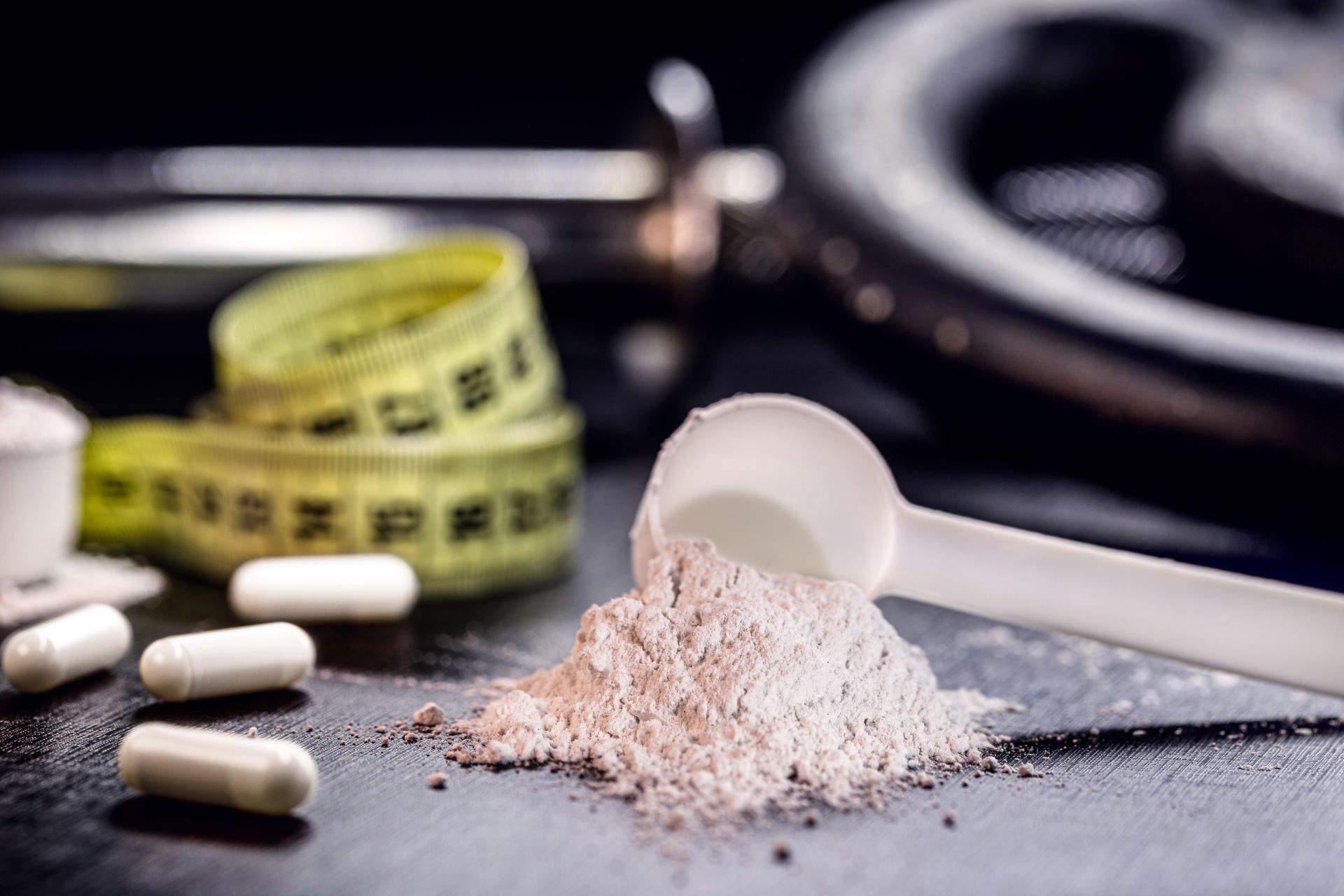Sodium butyrate and sports - what are its uses and what dosages to use?

The last decade has caused athletes to completely change their approach to supplementation. Today, not only supplements that work strictly on athletic performance and anabolism are no longer present in sports, but also many more products that are typically health-promoting. By supporting their overall health, including gut health and the state of the microbiome, athletes indirectly enhance their performance. Sodium butyrate is one such supplement that is not directly associated with sports, yet is beloved by many athletes. In this article, we will discuss how sodium butyrate can help athletes. Read to the end!
- What are the benefits of sodium butyrate for athletes?
- SCFAs and the gut microbiota affect athletic performance
- IBS is a common condition among athletes
- How does sodium butyrate affect body weight?
- Dosage of sodium butyrate for sports
- Summary
What are the benefits of sodium butyrate for athletes?
Butyricacid, of which sodium butyrate is composed, is a short-chain fatty acid (SCFA) that is produced by beneficial bacteria that inhabit our intestines. It is both a preferred source of energy for intestinal epithelial cells and a very important factor for maintaining a consistent intestinal barrier and overall intestinal health.
Sodium butyrate is the sodium salt of butyric acid. It is in this form that butyric acid is found in dietary supplements, as it then has better stability.
The above are the main, most well-known characteristics of sodium butyrate. However, thanks to science, we are learning more and more interesting properties of this fatty acid. Many of them extend strongly beyond the gut to many other aspects of health. One of them is the effect on metabolic function and even on parameters related to athletic performance.
SCFAs and the gut microbiota affect athletic performance
Short-chain fatty acids, namely butyrate, acetate and propionate, can modulate substrate metabolism in skeletal muscle. The relationship between probiotic bacteria and the gut microbiome and the effect on athletic performance has already been much studied. Nowadays, more and more in this context is looking at the role of postbiotics, or metabolites produced by gut bacteria. Butyrate and other SCFAs are just such postbiotics. For example, in mice, SCFAs have been shown to increase exercise endurance in mice.
It is estimated that the gut microflora influences the host's energy metabolism by producing its own metabolites, which provide ~10% of the host's daily caloric requirements, and by directly or indirectly influencing appetite, fat storage and glucose tolerance.
SCFAs not utilized in colonocytes make their way through the portal vein to the liver, where they can be used as Krebs cycle substrates or enter the bloodstream and produce beneficial effects in various cells and organs. The researchers' findings suggest that one of these target organs is skeletal muscle containing G-protein-coupled receptors GPR41 and GPR43, which are SCFA-specific receptors that play a role in skeletal muscle metabolism.
Although further research is needed to further confirm its ergogenic potential, the gut microflora and its metabolites may enhance exercise capacity through mechanisms that increase lactate metabolism, increase glycogen storage capacity or affect substrate metabolism in skeletal muscle.
IBS is a common condition among athletes
After supplementation with sodium butyrate, one can expect not only improved performance, but also (and perhaps mainly?) alleviation of some of the side effects of intense exercise. Sodium butyrate is very often used to reduce the symptoms of IBS, or irritable bowel syndrome. And the statistics are merciless.
Many endurance athletes struggle with lower gastrointestinal complaints. This is not only a habitual discomfort, but also a problem that can impair athletic performance. With endurance sports, it is important to be able to perform physical activity for relatively long periods of time with a minimum of any health unpleasantness that could disrupt focus or force a break.
A study was conducted among US athletes who had completed a marathon, ultramarathon, half-distance triathlon or full-distance triathlon. Medically diagnosed IBS was reported by 2.8% of the endurance athletes. The overall prevalence of IBS was 9.8%. Athletes with IBS were more likely to experience symptoms during exercise as well as at rest. However, only 47.6% consulted a doctor. More than 56% of athletes experienced at least 1 symptom sometimes, often or always during training and competition, and 18.6% had symptoms that sometimes or often interrupted/ prevented training. Nearly half (45.8%) of athletes and 80.0% of athletes with IBS reported that they had tried dietary modification to alleviate symptoms, while 20.6% and 52.4%, respectively, used over-the-counter medications.
Sodium butyrate supplements are a promising tool for relieving IBS symptoms, which can be of great help to athletes.

How does sodium butyrate affect body weight?
By regenerating the intestines, sodium butyrate may enable better absorption of nutrients. In general, it can therefore facilitate weight gain. For active people, this is great news, because with increased energy and nutrient requirements, proper utilization of each bite of food is very important.
There are also several reports from animal studies of the metabolic benefits of sodium butyrate supplementation.
One of the most popular studies exploring the relationship between sodium butyrate and metabolic parameters associated with obesity was conducted on rodents with a high-fat diet. In mice, a high-fat diet is a tool for inducing metabolic disorders and weight gain. In this study, the health of mice was monitored in 3 groups:
- those following a low-fat diet (LFD);
- those using a high-fat diet (HFD);
- those using HFD in combination with sodium butyrate.
Group 2, as expected, increased body weight and experienced an increase in hepatic triglycerides and IL-6 and tumor necrosis factor TNFα levels. However, in mice additionally treated with sodium butyrate, these parameters were 34-42% lower. Moreover, serum lipopolysaccharide (LPS) levels were 53% lower in Group 3 mice compared to Group 2 mice, but still 23% higher than in Group 1 mice. Lipopolysaccharides are pro-inflammatory endotoxins released by unfavorable bacteria. Fecal analyses of the composition of the intestinal microbiota showed that groups 1 and 3 had similar bacterial profiles, in contrast to group 2, where distinct changes were noted.
The changes noted may correspond to obesity-related improvements in lipid accumulation and low-grade chronic inflammation. The addition of sodium butyrate ensured that the parameters studied did not change as drastically during the unhealthy diet, remaining closer to the values characteristic of a diet more favorable to health.
Dosage of sodium butyrate for sports
In adults, the most common dosage is about 150 mg of sodium butyrate twice a day.
Just pay attention to whether, in your supplement, the amount of the substance declared on the label is actually the amount of sodium butyrate alone, or sodium butyrate together with micronutrients.
Micro-treated butyrate is most commonly used in supplements, and this is a very positive thing, as it makes a much larger amount of butyric acid reach the large intestine. However, it is important to keep in mind that the raw material of microencapsulated butyrate can be as much as 70% of the encapsulating material, such as palm oil or stearic acid. When choosing a supplement, pay attention to the dosage of sodium butyrate after subtracting the weight of the micro-encapsulated material.
Summary
Sodium butyrate is a supplement that can prevent some of the ailments that often attack athletes. Good intestinal health and proper absorption are important parameters for any active person to be able to optimally use food for the recovery of the trained body. In addition to the direct effects on the gut, active people can benefit from the healthy metabolism-promoting properties of sodium butyrate.
Sources:
 ⮜ Previous article
⮜ Previous article
How to dose creatine?
 Next article ⮞
Next article ⮞